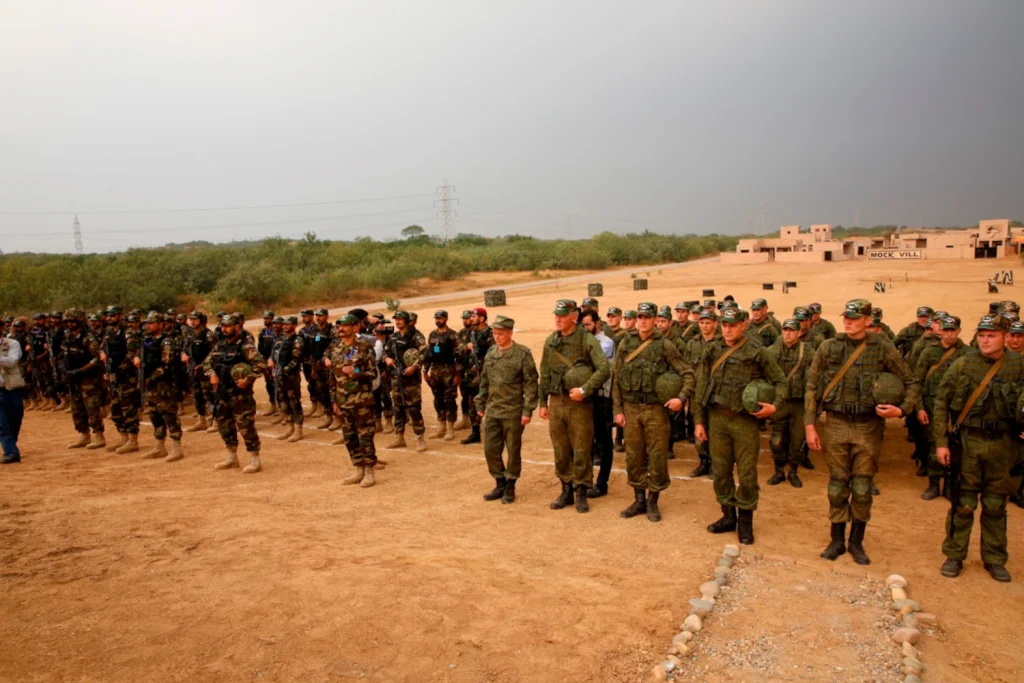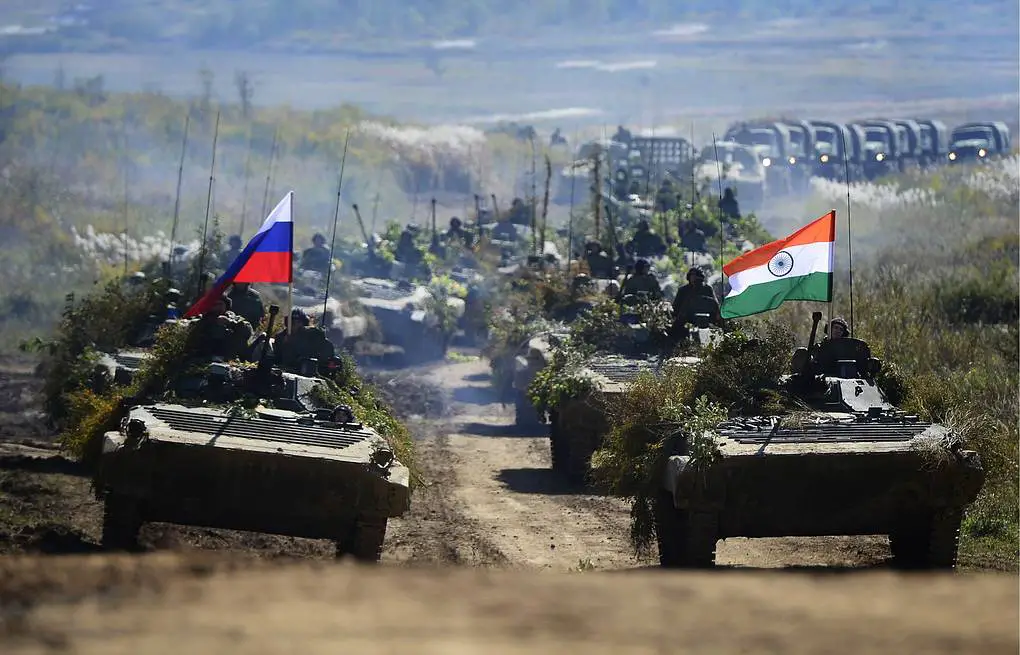Publicly financed Russian international media outlet TASS recently quoted the press service of its country’s Southern Military District, which announced separately planned drills with India and Pakistan later this year. According to the report:
“A joint cross-branch Russian-Indian exercise, Indra-2022, is planned to be held on the territory of the Southern Military District. Units of ground forces of Russia and India will practice common training objectives at the Prudboi training ground in the Volgograd Region [in southern Russia]. The naval component of the exercise will take place in the Black Sea. In October, the Southern Military District units will depart to the Islamic Republic of Pakistan for a joint Russian-Pakistani exercise, Friendship-2022.”
This pragmatic decision represents the latest practice of what can be described as Russia’s “military diplomacy”, or the creative use of military means to advance political ends. This policy in the particular context of Russia’s relations with India and Pakistan will now be elaborated upon.

India is indisputably Russia’s special and privileged strategic partner, especially after President Putin’s visit there in early December. That trip saw both sides agree to a whopping 99-paragraph strategic partnership agreement that included ambitions to cooperate jointly in third countries. Russia unofficially seems interested in exploring the potential of jointly leading a new Non-Aligned Movement (“Neo-NAM”) with India to assemble the third pole of influence in the increasingly bi-multipolar world order the US-Chinese New Cold War greatly shapes.
Pakistan’s role in the Russian grand strategy is comparatively less important but nevertheless shouldn’t be ignored. These two former Old Cold War-era rivals are in the midst of a fast-moving rapprochement that was initially driven by their shared security interests stemming from Afghanistan but has since comprehensively evolved into a solid partnership. The Pakistan Stream Gas Pipeline (PSGS) and Russia’s interest in participating in last February’s plans to build a Pakistan-Afghanistan-Uzbekistan (PAKAFUZ) railway represent the strategic connectivity, economic, and investment aspects of their new relations.
Russia’s military diplomacy plays a significant role in balancing the Kremlin’s ties with each of these rival South Asian states. The planned drills with India are always larger than the anti-terrorist ones that it’s held with Pakistan since 2016. That’s because their military-technical cooperation has historically been the core of their special and privileged strategic partnership even though it’s quickly diversifying into new realms such as Eurasian connectivity via the North-South Transport Corridor (NSTC) and Vladivostok-Chennai Maritime Corridor (VCMC).
When it comes to Pakistan, joint anti-terrorist drills represent an important trust-building exercise that helps align the military-intelligence interests of these two top stakeholders in Afghanistan’s stability. Observers should remember that their shared security interests stemming from that war-torn country first inspired these two former rivals to put aside their past differences and pragmatically chart a new future of relations initially driven by jointly cooperating on stabilizing Afghanistan. Their yearly drills help stabilize the region since both militaries share the important experience with the other.
Understandably, some in India and Pakistan might feel uncomfortable with Russia holding military drills with their rival, but they should understand that Russia’s 21st-century grand strategy is to become the supreme balancing force in Eurasia. To that end, it actively cultivates the comprehensive improvement of its separate relations with rival pairs of countries, hoping that its trust-based ties with both can influence each of them to explore political solutions to their disputes instead of military ones. This policy is also practised towards Armenia & Azerbaijan, China & India, China & Vietnam, etc.

The Indian-Pakistani dimension of Russia’s balancing act, and particularly its military diplomacy in the context of the present analysis, is therefore fully consistent with Russia’s 21st-century grand strategy. Its cooperation with each country in a rival pair thereof doesn’t harm the other’s interests. On the contrary, it’s in each rival country’s interests to see Russia cultivate better ties with their counterpart. That makes Russia a growing stakeholder in regional stability and can encourage it to proactively encourage political solutions to disputes whenever they threaten to turn hot.
It’s also impressive that Russia can cultivate such pragmatic ties with rival pairs of countries, including in the military domain since the US cannot do this due to its zero-sum perspective on International Relations. By contrast, Russia’s is truly mutually beneficial and predicated on ensuring regional stability, not disrupting the balance of power between rival countries like the US always tries to do as part of its divide-and-rule policy. For this reason, Russia’s separately planned upcoming drills with India & Pakistan should be praised throughout the region, not looked at with suspicion by some.
